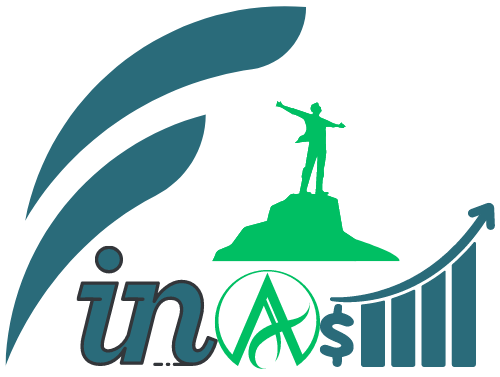Debt is like that uninvited guest who overstays their welcome—unsettling and often a source of stress. From student loans and credit card balances to mortgages and medical bills, debt can weigh heavily on our minds and wallets. But what if I told you that managing debt doesn’t have to be a nightmare? Yes, you heard it right! Today, we’ll dive into some proven strategies for managing debt in a stress-free manner. Whether you’re a recent graduate, a middle-income earner, or someone seeking financial wellness, these tips are for you.
1. Understanding Your Debt

Tally Up Your Debts
First things first: you need to know exactly what you’re dealing with. Gather all your financial statements, log into your accounts, and list every debt you owe. This includes:
- Credit card balances
- Student loans
- Personal loans
- Mortgages
- Car loans
- Medical bills
Categorize Your Debts
Once you’ve listed everything, categorize them by the type of debt and the interest rates. This will help you identify which debts are the most urgent and costly. High-interest debts (like credit card balances) should generally be prioritized because they’ll cost you more in the long run.
“Understanding your debt is the first step towards managing it efficiently.”
2. Setting Realistic Financial Goals

Creating a Budget
You can’t manage your debt without a clear understanding of your financial inflows and outflows. Creating a budget is crucial. List your monthly income and all your expenses, including rent, utilities, groceries, and even that Netflix subscription.
- Fixed expenses: Rent, utilities, loan payments.
- Variable expenses: Groceries, transportation, entertainment.
Allocating Funds for Debt Repayment
Once you have a budget in place, allocate a specific amount each month for debt repayment. Ensure this fits comfortably within your budget to avoid the yo-yo effect of paying off debt only to accrue more because you can’t cover your basic expenses.
3. Effective Debt Repayment Strategies

Snowball Method
The snowball method involves paying off your smallest debts first. Once you clear a debt, you move on to the next smallest, and so forth. The idea is to gain psychological momentum, giving you a sense of accomplishment as each debt gets eliminated.
Avalanche Method
On the other hand, the avalanche method targets the debts with the highest interest rates first. By doing this, you’re minimizing the amount of interest you pay over time. While it might take longer to see smaller debts disappear, this method can save you more money in the long run.
Hybrid Approach
Can’t decide between the two? Consider a hybrid approach. Start with the avalanche method to tackle some high-interest debts and then switch to the snowball method once you feel more comfortable.
4. Consolidation and Refinancing

What is Debt Consolidation?
Debt consolidation involves combining multiple debts into a single loan or credit line, ideally with a lower interest rate. This can simplify your repayment process and might even reduce your overall monthly payments.
Refinancing Loans
Refinancing is particularly useful for large debts like student loans or mortgages. By refinancing, you can potentially secure a lower interest rate or better terms, making it easier to manage your debt.
“Consolidation and refinancing can provide much-needed relief and simplify your financial management.”
5. Building an Emergency Fund

The Importance of an Emergency Fund
One of the most common pitfalls in debt repayment is not having an emergency fund. Life is unpredictable; car repairs, medical emergencies, and sudden job losses can happen. An emergency fund acts as a financial cushion, preventing you from accumulating more debt when unexpected expenses arise.
How to Start an Emergency Fund
- Automate Savings: Set up automatic transfers to your emergency fund.
- Start Small: Even $20 a week can add up over time.
- Keep it Separate: Ensure this fund is separate from your regular savings or checking account to avoid unnecessary withdrawals.
6. Seeking Professional Help

Financial Counseling
If you’re overwhelmed by your debt situation, consider speaking with a certified financial counselor. They can offer personalized advice and help you create a debt management plan.
Debt Management Programs
Reputable organizations offer Debt Management Programs (DMPs), where they negotiate lower interest rates or better terms with your creditors on your behalf. These organizations are:
a) National Foundation for Credit Counseling (NFCC) Members
Organization: NFCC is a leading nonprofit organization with member agencies that provide a range of financial counseling services, including DMPs.
Website: NFCC.org
Services: Credit counseling, debt management plans, financial education.
b) Money Management International (MMI)
Organization: MMI is a nonprofit credit counseling agency that offers DMPs, budget counseling, and financial education.
Website: MoneyManagement.org
Services: Debt management plans, credit counseling, bankruptcy counseling, housing counseling.
c) GreenPath Financial Wellness
Organization: GreenPath provides comprehensive financial counseling and DMPs to help individuals manage their debt.
Website: GreenPath.com
Services: Debt management plans, financial counseling, housing counseling, and student loan counseling.
d) Cambridge Credit Counseling
Organization: Cambridge is a nonprofit that offers debt management programs, student loan counseling, and housing counseling.
Website: Cambridge-Credit.org
Services: Debt management plans, credit counseling, student loan counseling, housing counseling.
e) American Consumer Credit Counseling (ACCC)
Organization: ACCC provides credit counseling, debt management plans, and financial education to help individuals reduce their debt.
Website: ConsumerCredit.com
Services: Debt management plans, bankruptcy counseling, housing counseling, financial education.
f) InCharge Debt Solutions
Organization: InCharge offers debt management plans along with financial counseling and education.
Website: InCharge.org
Services: Debt management plans, credit counseling, bankruptcy counseling, housing counseling.
g) Consolidated Credit Counseling Services
Organization: Consolidated Credit helps consumers through debt management programs and educational resources.
Website: ConsolidatedCredit.org
Services: Debt management plans, credit counseling, housing counseling, student loan counseling.
e) Clearpoint Credit Counseling Solutions
Organization: Clearpoint offers DMPs and financial counseling, now part of Money Management International.
Website: Clearpoint.org
Services: Debt management plans, financial counseling, housing counseling.
f) Consumer Credit Counseling Service (CCCS) Agencies
Organization: CCCS agencies provide credit counseling and DMPs, often part of NFCC.
Website: Search for local CCCS agencies via NFCC.org
Services: Debt management plans, credit counseling, financial education.
g) CredAbility
Organization: Now merged with Clearpoint to form Clearpoint Credit Counseling Solutions.
Website: Clearpoint.org
Services: Debt management plans, credit counseling, financial education.
h) DebtWave Credit Counseling
Organization: DebtWave offers DMPs and financial education to help individuals manage their debt.
Website: DebtWave.org
Services: Debt management plans, credit counseling, financial education.
i) Apprisen
Organization: Apprisen provides debt management plans and financial counseling services.
Website: Apprisen.com
Services: Debt management plans, financial counseling, educational resources.
7. Maintaining a Healthy Relationship with Money

Financial Literacy
The more you know about money management, the better positioned you’ll be to make smart financial decisions. Books, online courses, and seminars can offer valuable insights into budgeting, investing, and debt management.
Create Positive Financial Habits
- Track Spending: Use apps or spreadsheets to monitor your spending.
- Review Budget: Regularly revisit and adjust your budget as needed.
- Celebrate Milestones: Reward yourself (reasonably) for reaching debt repayment milestones to stay motivated.
Mindset Matters
Managing debt is as much about mindset as it is about money. A positive, proactive attitude can make a world of difference. Celebrate small victories, stay informed, and don’t hesitate to ask for help when needed.
“Financial literacy and positive habits can set you on the path to long-term financial wellness.”
You’ve got this!
Managing debt doesn’t have to be stressful. By understanding your debt, setting realistic goals, employing effective repayment strategies, considering consolidation, creating an emergency fund, seeking professional help, and maintaining a healthy relationship with money, you can tackle your debt head-on.
Remember, the journey to a debt-free life is a marathon, not a sprint. Stay patient, stay informed, and, above all, stay positive. You’ve got this!
Feel free to share your experiences or ask questions in the comments below. Let’s build a community where we all support each other in achieving financial well-being.





Pingback: Retirement: 5 Ways to Create Excellent Retirement Plans Right Away
Pingback: How to Spend Wisely: Achieve Financial Freedom - Finapeak
Pingback: 5 Proven Ways to Pay Off Credit Card Balances Fast